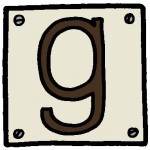
I’ve been working on a haiku about these seedpods but I don’t quite have it.
Want to give it a try?
Every so often, I set aside a day, or a few, to write haiku. I love that they require me to slow down and attend to the world around me. Haiku are about our immediate experience of the physical world. They are different from so many other forms because they don’t generally use rhyme or metaphor or other poetic tools. The writer is not supposed to interpret the experience for the reader—just transport the reader, so the reader can have the experience too. In a way the writer is supposed to make herself invisible. But, not really. The writer is, of course, present in the moment she chooses to share and in the way she constructs the experience for the reader. I’m not even sure it’s quite correct to say haiku doesn’t use metaphor—sometimes the metaphor seems to lie in the unstated connection between the two parts of the poem and sometimes the whole poem feels like a metaphor.
My very favorite aspect of haiku is the inference. The reader must infer the meaning, which the writer does not state. It is the unsaid that I find endlessly intriguing.
Today I thought I would share some of haiku of mine that have been published recently. Another nice thing about writing haiku is that there are a handful of journals that accept and publish them regularly, so haiku poets have opportunities to share. I highly recommend all of these publications for reading and for submitting. The Heron’s Nest and A Hundred Gourds are available on-line. Frogpond and Acorn are gorgeous, paper journals.
icicles…
keeping time
until the end
The Heron’s Nest, Vol. XVI: No. 1, March 2014
snow field
the earth marked
by fallen angels
Frogpond, Vol. 36:3, Autumn 2013
Third Place, Harold G Henderson Memorial Award, Haiku Society of America
measuring
the length
of my solitude
inchworm
A Hundred Gourds, Vol 3:2, March 2014
sending ripples
through the clouds…
water strider
Acorn, Fall 2013
For more Poetry Friday, visit the rogue anthropologist!











